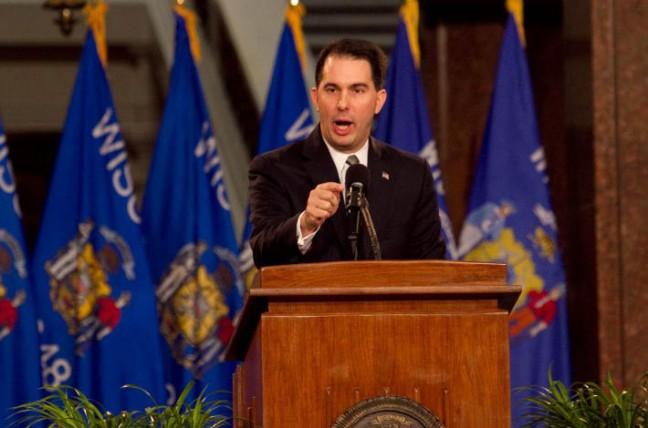State Senate Majority Leader Scott Fitzgerald, R-Juneau, said Thursday he was gathering information for right-to-work laws, which limit unions in their abilities to make deals with private sector unions.
Fitzgerald said in a statement he hopes the legislation will be taken up early next year, which has been vigorously promoted by a recently launched group spearheaded by conservative activist Lorri Pickens.
“Right-to-work legislation is very simple because all it does is give every individual employee a choice when it comes to union membership and payment of any union dues or fees,” Vice President of National Right to Work Patrick Semmens said in an email to The Badger Herald.
Private-sector unions were left untouched by Gov. Scott Walker’s 2011 Act 10 reforms that effectively ended collective bargaining rights for public-sector workers.
According to the Milwaukee Journal Sentinel, Fitzgerald told reporters, “I don’t know how we get through the session without having this debate,” and that it will have to come up early when the session begins in January.
These statements by Fitzgerald about the timing of this legislation are a shift from Walker’s campaign statements that said restricting unions in the private-sector would not be a priority for his administration.
“As I said before the election and have said repeatedly over the last few years, I just think right-to-work legislation right now, as well as reopening Act 10 to make any other adjustments, would be a distraction from the work that we’re trying to do,” Walker said, according to Wisconsin Public Radio.
Wisconsin State AFL-CIO President Phil Neuenfeldt said right-to-work legislation is the wrong step for the state.
Similar laws have recently been passed in Michigan and Indiana. Neuenfeldt said in states that have these types of laws wages and incomes are lower, statistically speaking.
“This type of legislation is confusing, it’s complicated, it’s controversial, it’s wrong for workers, it’s wrong for the middle class. It puts Wisconsin on the wrong path,” Neuenfeldt said.
Semmens said right-to-work states tend to see a rise in statewide employment. According to Semmens, right-to-work states saw private sector, non-farm employment rise 16.2 percent over past 10 years compared to just 9.3 percent in non-right-to-work states.
Semmens said right-to-work will encourage businesses to move to Wisconsin, thus creating jobs.
“It’s important to note that because of Gov. Walker’s Act 10 reforms most government employees in Wisconsin already have right-to-work protections. A full right-to-work law would just expand those protections from forced union dues to all workers in the state,” Semmens said.
Neuenfeldt said legislation dismantling unions will have consequences for the entire state, but especially the middle class.
He said given what has been going on in the economy, it would likely hurt wages and worker benefits.
“When you attack the labor movement and union contracts and the wages and benefits that they bring for people, you’re basically opening up a scenario where it’s lower wages and weaker benefit plans for all of the middle class, because that kind of sets the standard,” Neuenfeldt said.


